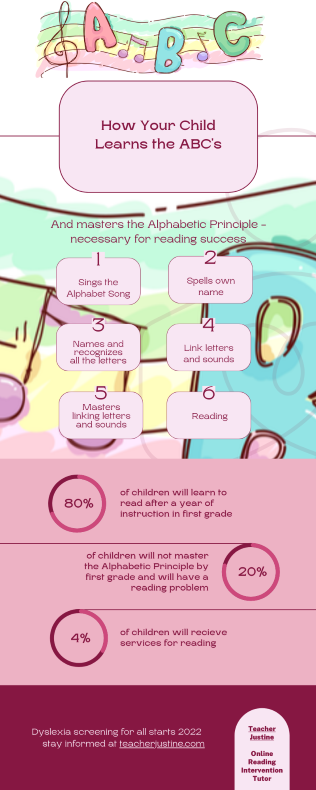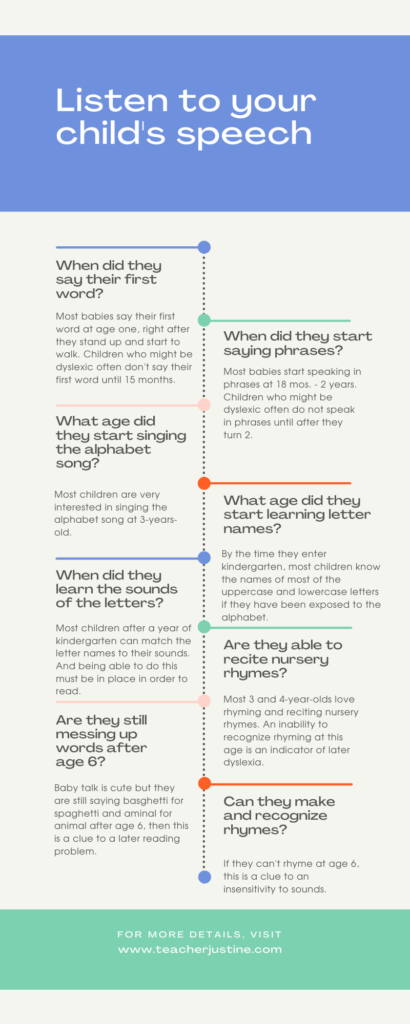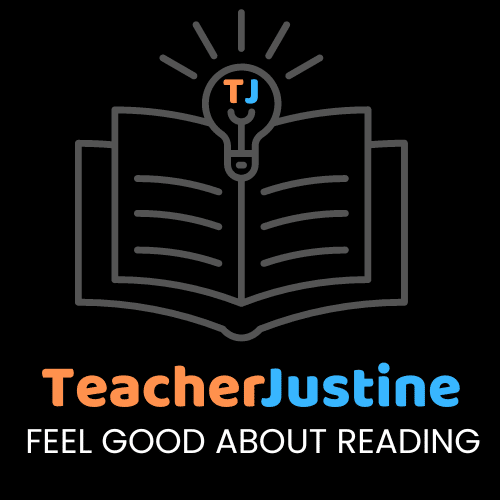Teacher Justine contains affiliate links and is a member of the Amazon Services LLS Associates Program. If you make a purchase using one of these Amazon links, I may receive compensation at no extra charge to you. See my disclosure policy for more information.
Child Can’t Read Entering First Grade – Should You Worry?
No and why you should not worry
It’s normal to worry when your six-year-old child can’t read going into first grade. Especially if you are comparing him or her to the children of people you know. There is a lot of pressure from society, friends, parents, your environment, to make you think that your child should be reading before they enter first grade. But in reality, first grade is the time when most children become developmentally ready to learn to read. Not before first grade.
IF YOUR CHILD IS
Struggling with Reading
We can help
Before first grade is when kids should be kids. They are learning everything they need to learn through their play. There is this idea that if we try to get our children to read earlier that they will be smarter and do better in school. But this doesn’t really make sense. It’s like asking your baby to start walking immediately. She can’t. She’s not developmentally ready.
Some children do start reading before first grade. That is because they are developmentally ready and they are interested. If you have a child like that, then let them read. The main point is don’t go against their nature. If they are ready to read, then that’s great! Give them books. But if they are not ready yet, don’t force them. They will just end up crying and hating reading and school.

Yes and when you should worry
You should worry if your child is delayed going through the steps of learning the alphabet.
The first stage happens around three years old when children begin singing the alphabet song. I remember visiting my sister when my first daughter was two and a half. My sister asked me if my daughter knew the alphabet yet. And I realized I didn’t know. We looked at my daughter and she was silent. And I said, “I guess not.” Then suddenly she burst out singing the entire alphabet song.
Preschoolers love to sing their ABCs. At this stage, children are not aware of the different letters. They can only say the alphabet when they are singing from beginning to end. You could not ask them to tell you what letter comes after another one.
If your child doesn’t start singing the alphabet song at this age, this would be something to note. I can’t remember when my second daughter began singing the song, but I know that she still did not fully know it in kindergarten. This should have made me worry, but at the time, I did not know this was an indication of a possible reading problem.
Recognizing and naming letters
By about age four, children begin to recognize and name the letters. They are usually most interested in learning the letters in their own name. Depending on the type of preschool and home environment, most children will know the names of all the upper and lowercase letters by the time they enter kindergarten. And definitely by the time they have had a full year of kindergarten instruction.
Letter-sound relationships
Mastering letter-sound relationships is critical for reading. And it is linked with knowing the names of the letters. Children focus on matching the letters and their sounds in most kindergartens. After a year of kindergarten they have usually mastered this. If they have not, then this would be a reason to worry as they enter first grade.
The alphabetic principle
When you master the alphabetic principle it means you understand that the number and sequence of sounds in a written word represent the sequence of sounds in a spoken word. This should be accomplished by the end of kindergarten.
The stages of learning the alphabet
From the time children are toddlers to when they begin first grade, they are getting ready to read. They do this through their love of language and singing the alphabet song, to trying out the letters in their names, to finally being able to associate sounds with the letters, and realizing that printed words represent speech sounds. Noticing a delay in these stages is an early clue to recognizing a potential reading problem.
You should also worry if your child can’t rhyme
Most 3 and 4-year-olds love rhyming and reciting nursery rhymes like Humpty Dumpty and Jack and Jill. An inability to recognize rhyming at this age is an indicator of later dyslexia.
Do you remember your child loving rhymes and showing an interest in the sounds of language at that age? Whatever their age now, ask them these questions now to see if they know how to rhyme:
- Do cat and hat rhyme? Do top and mat rhyme?
- Name a word that rhymes with a simple word like cat or make.
If your child can’t recognize when two words rhyme or they can’t name a word that rhymes with another one, then they will probably have a reading problem. Being able to rhyme and manipulate the smallest parts of language that make up a word (phoneme) is called Phonemic Awareness. Phonemic awareness means having an awareness of the sound structure of words. It means being aware that words can be broken into syllables which can be broken into sound parts (phonemes).

Phonemic awareness has a very strong connection to becoming a good reader. If your child has not established phonemic awareness before first grade, then you should be worried that they will have a reading problem.
Listen to your child for clues of reading problems
The best way to make sure your child will not have a potential reading problem is to listen to their speech.
If your child is still very young, it is the perfect time for you to start listening to their speech.
Start recording when they said their first word, their first phrases, the alphabet song, letter names, sounds of letters. What words do they mess up on?
Do they show a love of the sounds of language? Were they exposed to a lot of nursery rhymes. Which ones were their favorites?
These are the earliest and most important clues to potential reading problems. You can discover them by listening to your child’s speech.
If your child is already older, try to think back and see if you can remember their speech milestones.

Conclusion
The answer to the question “should I be worried if my child entering first grade can’t read yet” is No…and Yes.
Most children (70-80%) will learn to read after their first year of instruction no matter the method. However, 20-30% will not. And as I pointed out in my last blog post, only 4% of those children will end up getting diagnosed with dyslexia or a learning disability and therefore be able to receive services. That means that 20-30% of children will not learn to read after a year of instruction but only 4% will start receiving services.
So if your child is entering first grade and can’t read yet, they might easily learn to read after a year of instruction, or they might not. If you have noticed that they passed through the stages of learning the alphabet later than the typical child or that your child can’t rhyme, then you should be concerned and make sure to get intervention by the end of first grade or earlier.
Did you notice and record the speech milestones of your child? Or are you doing that now? What are your experiences? Let me know in the comments below. Thanks!
